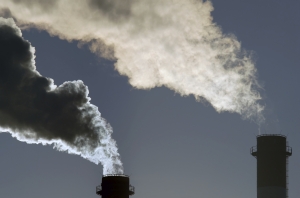The Coalition has confirmed its promise of $2.55 billion of funding for their central climate mechanism, the Emissions Reduction Fund (ERF), yet has projected that spending will be slower than anticipated due to a lag in entering into contracts, delivery of abatement and subsequent payments.
The budget forecasts $1.1bn to be paid out in the first four years of the ERF, commencing with $75.5m in 2014-15, rising to $299.8m in 2015-16, $354.5m in 2016-17 and $416.9m in 2017-18.
Notably, the government expects that the potential $2.55 billion will be paid out over ten years to 2023-24, reflecting a five year contracting period for abatement and the timing limitations of supplying a large amount of abatement credits to the government.
More, or less, the same
As noted in today’s media, the lower forecast cash flow for the ERF will raise eyebrows, with the government’s projected payments of just $1.1 billion over four years, less than half the $2.55 billion assured in the recent White Paper when the government announced a fourth year of funding for the program.
On paper the Government’s forecast expenditure changes little, with the Minister indicating that the Clean Energy Regulator will be free to enter into contracts up to $2.55 billion at any point over the next four years, with the annual promise of $300/500/750/1000 million previously detailed in the White Paper to be paid out as abatement is produced over a period beyond the forward estimates.
According to the government, “Funds will be allocated flexibly over time according to the profile of projects contracted under the Emissions Reduction Fund” suggesting that the Regulator will be able to write contracts up to the value of $2.55 billion at any point over the next 4 years.
Nevertheless, $2.55 billion remains a conceivable starting point for a successful ERF, with further funding commitments still possible beyond the first four years.
Market Implications
In simple terms, the budget means very little for the local market.
As noted in our earlier analysis, initial participation in the ERF remains a key watch for participants, with a scarcity of ACCUs in the first half of FY15 likely to be particularly acute due to the requirement for the government to develop methods and participants to register projects for new abatement activities.
In line with the government’s expected cash distribution, we continue to forecast that the low number of bidders will mean that ERF funding is unlikely to be exhausted in the early years, leaving a large amount of capital available for small and large bidders.
Inversely, low supply and low competition for funds may provide an opportunity for early movers to secure higher priced contracts while participation in the ERF is low.
Early abatement supply is further complicated by the continued operation of the FY14 liability of the CPM beyond the repeal date, with the final true-up period lasting until February 2015.
As a result, current CFI participants – the only current ACCU generators – are expected to take a high bid approach in the ERF’s initial rounds given the prices on offer under the CPM true up, with ACCU offset values currently worth more than $22 under the CPM.
This is expected to inflate ERF prices in early auction rounds, before prices fall in line with growing supply and competition for funds.
To read more, you can access our Carbon Market Update for May, click here.
We will also be holding a free Webinar tomorrow, titled “Early opportunities for industry under the Emissions Reduction Fund?” which will discuss market dynamics and expectations for supply following the recent draft legislation.
You can register now by clicking here (free event).
Kind Regards
The RepuTex Team
Australian Emissions Markets










